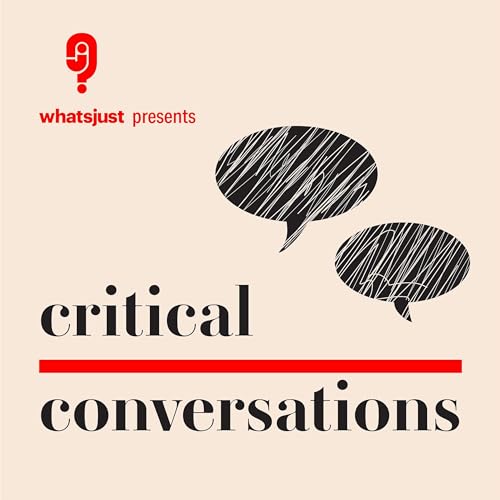Send us a Text Message.
This episode is step four in the 10-Step Toolkit to Having Critical Conversations and features Dr. Peter T Coleman, a professor of psychology and education at Columbia University and a renowned expert on constructive conflict resolution, intractable conflict, and sustaining peace. Dr. Coleman has authored or edited a dozen books, well over 100 scientific articles and chapters, is the recipient of various awards, and his work has been featured in media outlets such as The New York Times, The Guardian, Nature, Scientific American, PBS Newshour, and Harvard Business Review. His most recent book, The Way Out: How to Overcome Toxic Polarization (2021) focuses on breaking through the intractable polarization plaguing the U.S. and other societies.
In this episode, we:
- discuss the benefit of conflict
- explain how to navigate political discussions with family, friends, and strangers
- identify the importance of tolerance
- provide tools for conflict resolution
If you have any questions or comments you would like addressed in the Q&A with Dr. Coleman, please email whatsjustpod@gmail.com. Don't forget to follow Whatsjust on Instagram, Twitter, and LinkedIn and subscribe to the weekly newsletter to get details on where and when the Live Q&A is happening!
And, as always, please review, subscribe, and share with everyone you know :)
Become a supporter of the show with a monthly subscription (amount of your choice) and get a shoutout in upcoming episodes!
Timestamps:
00:00 Intro
01:32 Insights from Dr. Peter T. Coleman on Conflict and Polarization
03:41 Understanding Polarization: Definitions and Implications
04:43 The Constructive Side of Political Differences
09:11 Personal Stories and the Power of Intention in Conversations
13:40 Dialogue vs. Debate: Strategies for Meaningful Conversations
20:23 The Role of Self-Awareness in Navigating Conflict
27:59 Practical Tips for Reducing Conflict and Enhancing Understanding
33:52 Exploring the Mind-Body Connection in Conflict Resolution
35:13 The Evolution of Human Conflict and Settlement
35:53 Navigating Political Discussions at Family Gatherings
36:48 Setting the Tone for Constructive Conversations
37:40 Conflict Resolution in the Classroom: A Case Study
39:41 The Challenge of Changing Minds and the Power of Listening
44:50 Complicating the Narrative: Beyond Two Sides
58:27 The Importance of Tolerance and Understanding in Conflict
01:01:14 Personal Interests Beyond Conflict Resolution
Support the Show.
 1 hr and 6 mins
1 hr and 6 mins 1 hr and 13 mins
1 hr and 13 mins 56 mins
56 mins 1 hr and 9 mins
1 hr and 9 mins 1 hr and 1 min
1 hr and 1 min 54 mins
54 mins 1 hr and 4 mins
1 hr and 4 mins 1 hr
1 hr